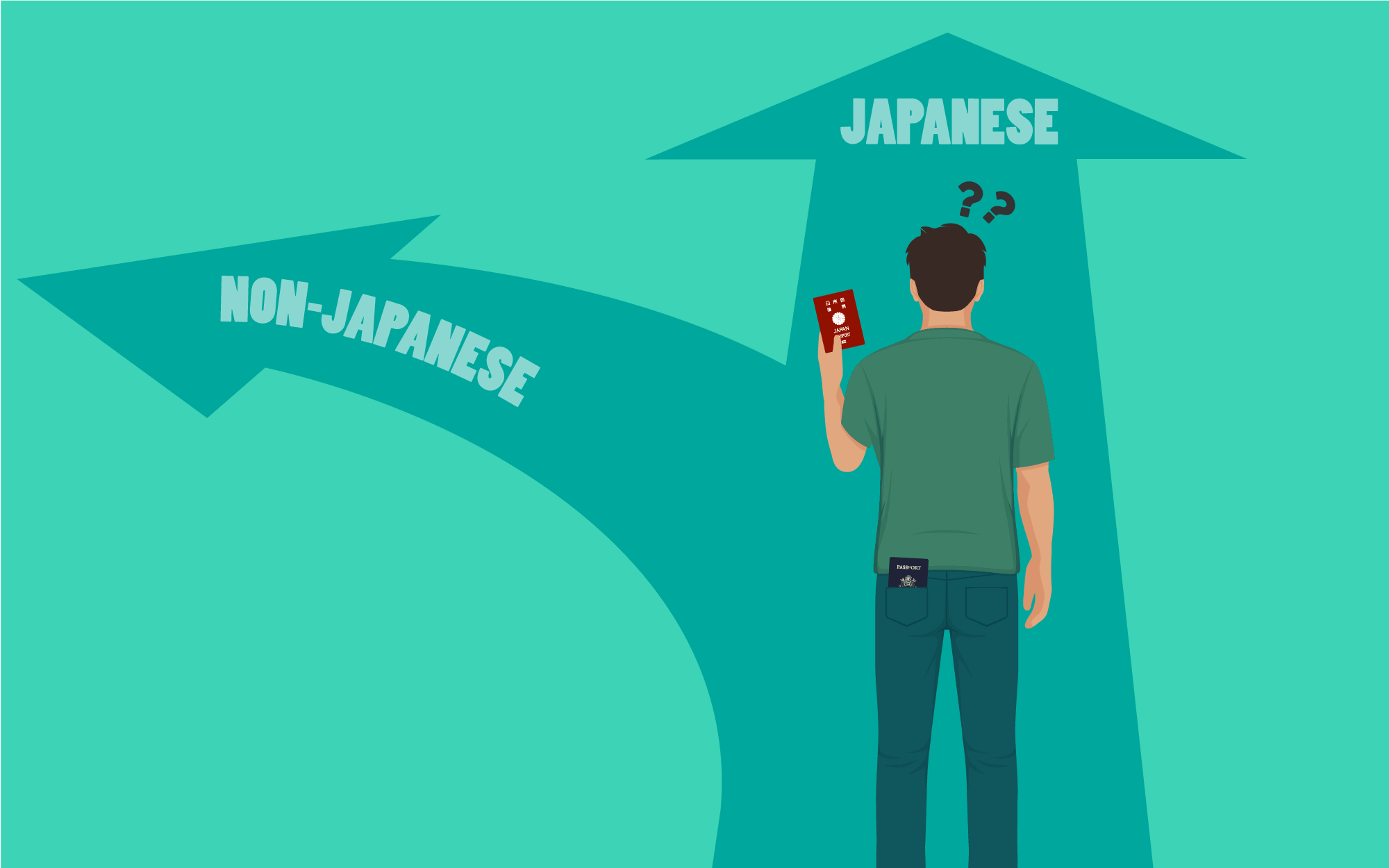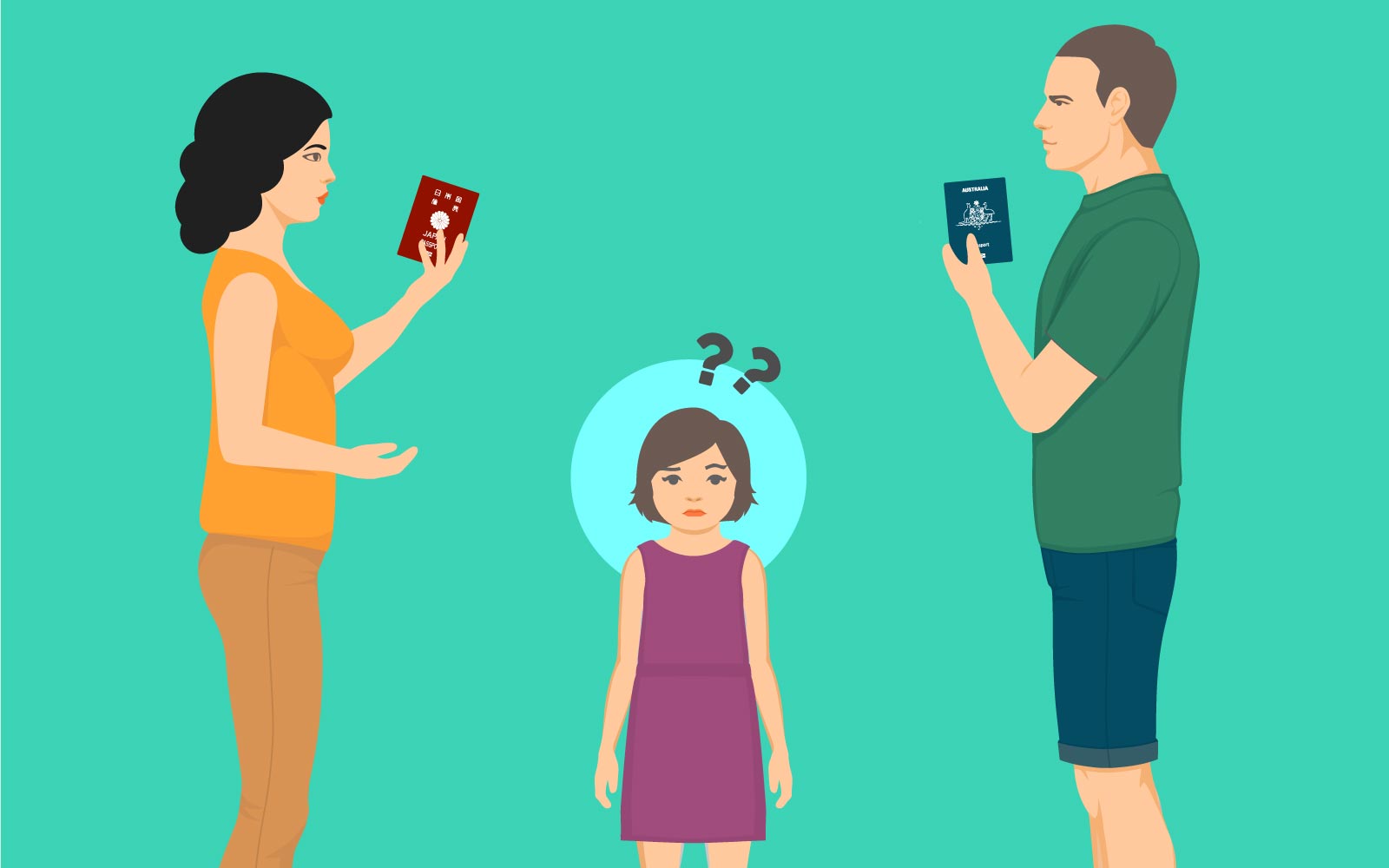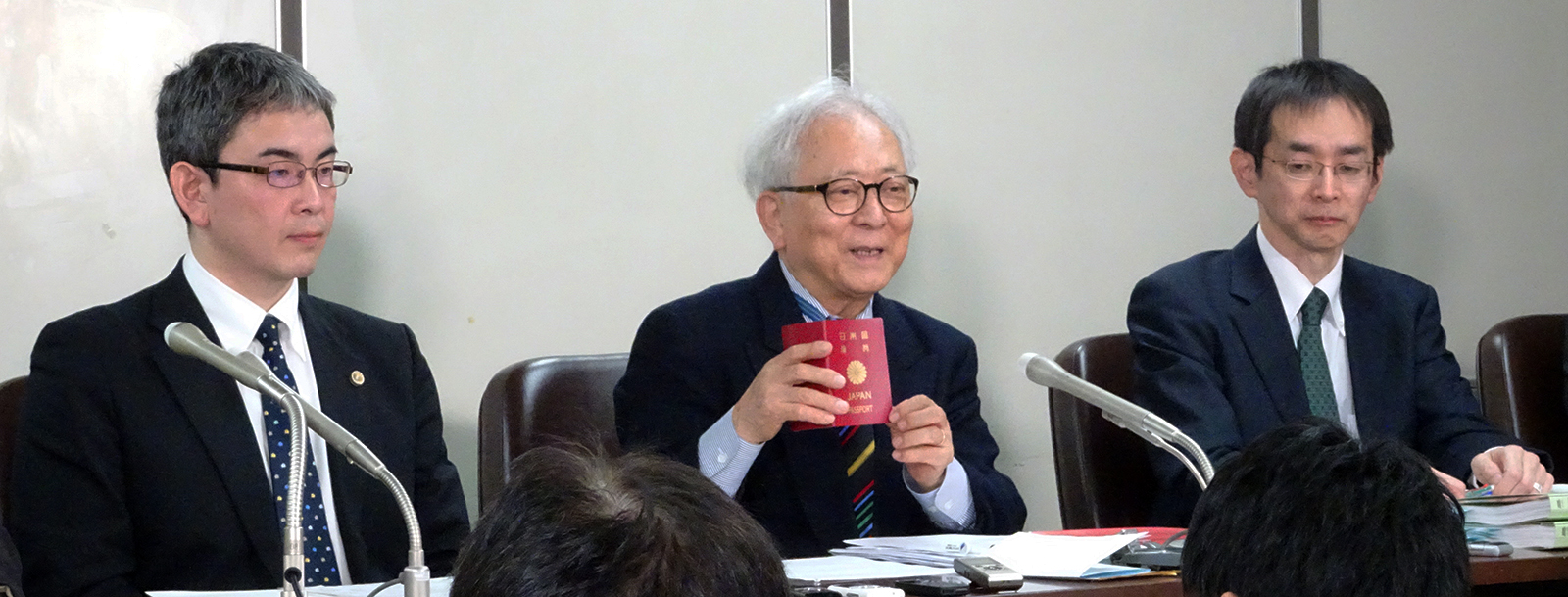Seeking elusive answers to a big question
Forfeiting your citizenship might seem like a strange way to better connect with your country, but Hana Dethlefsen was compelled to make such a decision after getting caught up in the complicated legal web of Japan’s Nationality Act.
“I had to give up my Japanese nationality in order to qualify for the JET Programme, which I did at age 21. My understanding was that I would have to give it up at age 22 anyway, so giving it up one year earlier wouldn’t have made a difference,” Dethlefsen said. JET is a state-sponsored program that invites non-Japanese college graduates to work mainly as language teachers at local schools.
“(But) in my discussions with other half-Japanese friends, I’ve come to understand that we all have different understandings of what is acceptable,” said Dethlefsen, who now has German and Canadian citizenship.
Confusion about the legality of holding dual nationalities stems from the opaqueness of the law and the difficulties surrounding its enforcement, causing some to forfeit one of their nationalities while others live in fear of a day when they are forced to choose between their citizenship, identity and family ties.
The nationality law officially obliges those who have multiple citizenships by birthright to choose one by the age of 22.
But in fact, possibly hundreds of thousands have maintained multiple nationalities and to date the government has never cracked down on any of them.
In response to questions over the number of dual nationals, the Justice Ministry confirmed to The Japan Times that some 890,000 people were or are in a position to have dual nationality. This figure is based on official family registries maintained by local municipalities between 1985 and 2016, and includes people who have declared or forfeited Japanese citizenship, as well as people assumed to have multiple nationalities based on their birthright.
According to a survey conducted by The Japan Times of 1,449 people with dual nationalities, 76.8 percent maintain dual citizenship while 23.2 percent decided to forfeit one of their passports.
The same survey showed that 39.5 percent of multiple passport holders “always” switch passports depending on the country they enter, while 37.3 percent “sometimes” switch passports.
With the government’s official position becoming more divorced from a globalizing society where a large number of people maintain dual nationalities, many have to rely on word-of-mouth for information on what they see as an important, life-changing decision regarding their citizenship.
“We had received different information about what is and isn’t acceptable, and therefore, some of us had dual nationality and some of us had given up our Japanese citizenship when we came of age,” Dethlefsen said.
May, who declined to give her real name for this article, citing privacy concerns, has both Japanese and Australian citizenship. She told The Japan Times that years ago when she was unsure about what to do with her dual nationalities, she often relied on internet forums and social media websites such as Mixi to connect with others in similar situations.
“We would talk about what we would do with our dual citizenship, we would try to give each other anecdotal advice. This is still the same now. These topics come up all the time and nobody knows the answer,” she said.
“When I renewed my passport most recently — two years ago — I had a massive meltdown because there was a new section where I had to report whether I had dual nationality. I bawled my eyes out. … I was worried I would have to give up one of my citizenships,” she continued.
Like May, many dual citizens are surprised to see that passport renewal forms include a section regarding dual nationality. This is in order to confirm whether the applicant has naturalized as a citizen of another country, which under the law would automatically mean the revocation of their Japanese passport, according to a Foreign Ministry official.
But having multiple passports does not mean that the ministry won’t issue a Japanese passport, the official added, since the Foreign Ministry does not track dual citizens.
While the murkiness over the law has left those with multiple nationalities anxious about their status and has prompted many to take steps to hide it, many dual nationals spoke of experiences that seem to indicate the government has been quick to look the other way when it comes to enforcing the law.
“I remember I once stupidly handed in the wrong passport — my American one instead of my Japanese one — at the immigration desk for Japanese passports,” Chris, who also requested anonymity when talking to The Japan Times, said of an experience when entering Japan.
“There was a moment of panic but the Japanese immigration agent just said, ‘No sir, the other passport.’ I handed in my Japanese passport and he took it, stamped it, and let me pass. … It was as if he had experienced this kind of situation multiple times, and saw this particular episode as a nonissue,” he said.
Yet, there appear to be some cases where dual nationals have experienced pressure from local government officials to choose between one of their nationalities.
That was the case for James, who requested he be identified by his first name only. During a visit to his local government office, he was informed, much to his surprise, that he also was a Japanese national. Since James had already registered as a foreign resident at the same local government office, it was obvious to the local officials that he, in fact, possessed multiple nationalities.
When he decided to register as a Japanese citizen, the local city officials appeared to be agitated by the decision.
“Because I was already registered as a foreigner, it caused quite a stir at the city office. … An employee told me that I needed to turn in my American passport to the city office and sign a document saying that I give up my American citizenship,” James recalled.
“I said that I’m not comfortable doing that (giving up my American citizenship), and that I’d like to consult a lawyer familiar with this type of issue. … (The official) said that I was just unwilling to do things that were inconvenient. I left after that, feeling pretty bad about the experience.”
One factor behind the confusion over the law is that it fails to specify any penalties against dual nationals who do not pick a nationality. It instead only states that the justice minister reserves the right to “warn” them to choose a nationality. If a dual national does not make a choice within a month of receiving the warning, their Japanese nationality is automatically revoked.
However, this right to warn such nationals under the 1985 revision of the nationality law has never been exercised, a Justice Ministry official confirmed earlier this month, partly because the act of tracking down citizens with multiple nationalities and encouraging them to make a choice would be a bureaucratic nightmare.
“We actually cannot be sure about who has multiple nationalities,” Kei Kurayoshi, then the ministry official in charge of nationality issues, told a parliamentary session in 2008.
“Given that uncertainty, sending reminders to those we just happen to know have multiple nationalities by chance is a questionable practice,” Kurayoshi said. “There are a lot of opinions about this, but we have not sent out any reminders due to such reasons.”
That is not to say that the law itself is completely ineffective, because in theory Japanese citizenship could be revoked if a dual national does not make a choice. Its very existence serves as a threat, said Yasuhiro Okuda, a law professor at Chuo University who specializes in the Nationality Act.
Even if it may be only on paper and not in practice, the official stance that one can have just a single citizenship sends a powerful message to those with multiple nationalities.
“I strongly connect with my Japanese heritage, but I don’t feel welcomed by Japan. Having to choose a nationality at age 22 was the first formal instance of feeling as though I was ‘not Japanese enough,’ ” Dethlefsen said.
This sentiment was echoed by Chris.
“If I were forced to decide which citizenship to retain and which citizenship to relinquish, I would view it as which culture and which nation am I to abandon,” he said. “I think of that decision as emotionally charged.”
Michiko, who asked to be identified only by her first name, was born to a Japanese mother and a German father but never lived here and only received her Japanese passport at the age of 22 on a visit to Japan. She was unaware of the intricacies of having dual nationalities in Japan, yet she could tell that something didn’t feel quite right when her mother took her to the local municipality to get her first Japanese passport.
“When we got the passport in Japan at the local city hall, it didn’t feel legal to me,” she said. “It felt a little weird. I never researched it or anything … but I just had this feeling that it was illegal to have a second passport.
This climate of fear is creating a vicious cycle of negativity, said Teru Sasaki, professor of sociology at Aomori Public University.
“For some, nationality is the final stronghold of the Japanese identity. The very notion of dual nationality challenges that and creates fear for those who are unfamiliar with the concept,” said Sasaki.
Regardless of whether dual nationality is tacitly approved or not, “the idea of single nationality also tied in with, and reinforced, the Japanese postwar belief in a pure, homogeneous nation-state,” said Atsushi Kondo, a professor at Meijo University in Nagoya. “The wording of the current law shows a very strong hope in maintaining that ideal.”
Sasaki noted that this climate of fear became especially prominent during last year’s media frenzy over whether Renho, who at the time was leader of the Democratic Party, held both Japanese and Taiwanese citizenship.
“The recent public backlash over whether Renho had dual nationality created an atmosphere of fear for the individual,” he said.
As multiple citizens languish under this cloud of uncertainty, any hopes of spurring momentum on the issue within the ruling Liberal Democratic Party has been lost in the wake of the Renho furor. In addition to the already entrenched beliefs about identity, this lack of political momentum has contributed to the inertia surrounding the law.
“The question of nationality is an issue of great significance to nationalists, as well as some politicians,” said Kondo, who expressed his skepticism that any changes to the nationality law would come about.
He added that Renho’s case is an example of the reluctance to change the political climate, saying that “Some politicians made a big fuss about the possibility that she was a dual national, despite the fact that none of the facts were confirmed.”
Even politicians once in favor of changing the law appear to be avoiding commenting on what has become a politically charged issue.
Foreign Minister Taro Kono — who was once a vocal champion of changing the law and even published a proposal that allowed dual citizenship under certain conditions — has taken a noticeably softer stance on the issue.
When asked earlier this month by The Japan Times whether the Nationality Act was outdated, Kono was curt in his answer, refusing to champion a cause he once served.
“You should ask the Justice Ministry,” he said.




